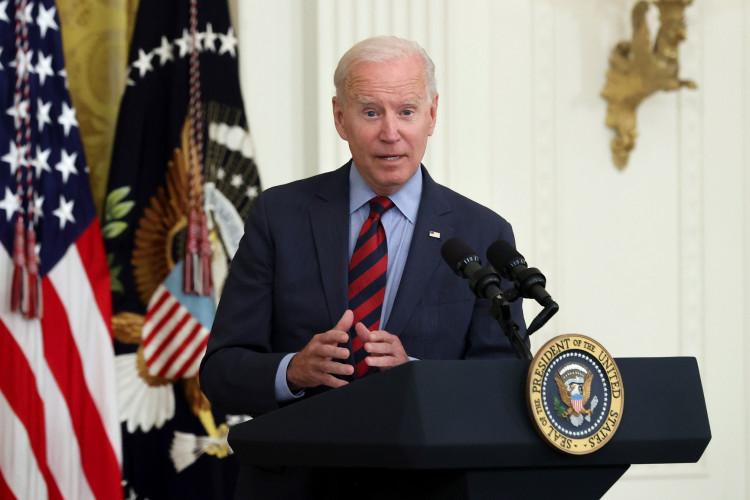President Joe Biden on Friday officially blocked the proposed $14.9 billion acquisition of U.S. Steel by Japan's Nippon Steel, marking a significant assertion of executive authority. The decision underscores the administration's commitment to protecting domestic control over critical industries amid intensifying geopolitical and economic concerns.
"Today's action reflects my unflinching commitment to utilize all authorities available to me as President to defend U.S. national security, including by ensuring that American companies continue to play a central role in sectors that are critical for our national security," Biden said in a statement.
The move follows months of scrutiny by the Committee on Foreign Investment in the United States (CFIUS), which was tasked with assessing the deal's implications for national security. Despite the committee's failure to reach a consensus, Biden decided to block the transaction, citing risks to critical supply chains.
U.S. Steel shares tumbled over 8% in premarket trading following the announcement.
The proposed deal, announced in December 2023, drew fierce opposition from the United Steelworkers union and bipartisan political figures, including President-elect Donald Trump. The union argued that Nippon Steel had not provided adequate assurances regarding the protection of union jobs, particularly at U.S. Steel's older mills, where many of the company's 11,000 unionized employees work.
"As I have said many times, steel production-and the steelworkers who produce it-are the backbone of our nation," Biden emphasized. "A strong domestically owned and operated steel industry represents an essential national security priority and is critical for resilient supply chains."
The deal has been politically contentious, with critics pointing to U.S. Steel's symbolic importance as a cornerstone of American industrial strength. Founded in 1901, U.S. Steel was once the world's most valuable company, instrumental in building the nation's infrastructure. Despite its decline over recent decades, the company remains a potent emblem of American manufacturing and economic resilience, particularly in key battleground states like Pennsylvania.
Nippon Steel and U.S. Steel defended the merger, stating it would provide a much-needed $2.7 billion investment to modernize facilities and enhance competitiveness. U.S. Steel CEO David Burritt previously warned that the absence of such capital could result in plant closures, further threatening jobs and production capabilities.
Biden's decision, however, is not the final chapter in the contentious saga. Both Nippon and U.S. Steel have vowed to challenge the administration's decision in court, seeking to overturn the block and proceed with the acquisition.
"Bad decision," a senior administration official reportedly said, criticizing Biden's move. "It doesn't actually protect union jobs and may kill the company."
The implications of the decision extend beyond U.S. Steel. Analysts suggest it could deter foreign investment in American companies, raising questions about the balance between protecting national interests and fostering economic growth. The move comes amid heightened protectionist sentiment in Washington, with policymakers increasingly wary of foreign ownership in sectors deemed vital to U.S. security.
Tokyo, a key U.S. ally, expressed concern over the decision. Japan has been a crucial partner in countering China's ambitions in the Indo-Pacific, and the rejection of Nippon's bid raises questions about the limits of economic collaboration between the allies. The administration's stance highlights that even friendly nations are not exempt from scrutiny under the U.S.'s evolving protectionist policies.
Critics of the decision have pointed to the administration's apparent inconsistency in its approach to foreign investment. While Biden blocked Nippon's bid for U.S. Steel, his administration recently welcomed a $100 billion investment from Japan's SoftBank, targeting artificial intelligence technologies-a sector arguably more critical to national security.
U.S. Steel, which now employs only 14,000 workers compared to its post-World War II peak, faces an uncertain future. The company's decline reflects broader challenges in the domestic steel industry, including competition from overseas producers and shifting economic priorities.






